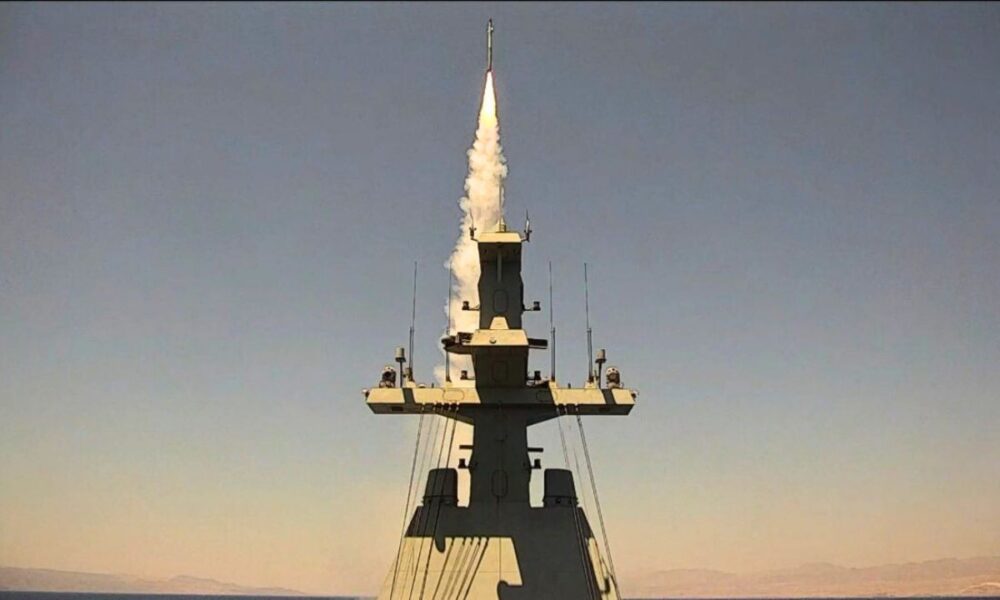Iran launched hundreds of ballistic missiles into central and northern Israel early Monday, killing at least eight people and injuring nearly 300 in one of the largest direct attacks between the two nations in recent history.
Four people were killed in Petah Tikva, three in Haifa, and one in Bnei Brak, Israeli authorities said, per The Guardian. The missiles also caused significant damage in Tel Aviv, including a direct strike that lightly damaged the U.S. embassy branch in the city, according to U.S. Ambassador Mike Huckabee. No embassy staff were injured, but American diplomatic missions remain under a shelter-in-place order.
The Israeli Health Ministry reported 287 people hospitalized across the country, with one in serious condition and 14 moderately injured; among those hurt were two patients at a children’s hospital in Petah Tikva, The Times of Israel reported. Most injuries were described as light or stress-related.
Some confusion–there were NO INJURIES to US Personnel at US Embassy Branch–the minor damage to property were from the shock waves (i.e. "concussions") from the nearby blast. Not human concussions. Repeat–NO INJURIES thank God! https://t.co/ZdabOn5Yy2
— Ambassador Mike Huckabee (@GovMikeHuckabee) June 16, 2025
The Israeli Defense Forces (IDF) said Iran launched around 350 ballistic missiles since Friday, including about 40 in Monday’s predawn barrage. Israel’s Iron Dome and other air defense systems intercepted many of the missiles, but several penetrated defenses and struck civilian areas. Dozens of Iranian drones were also launched and intercepted by Israeli air and naval forces.
הלילה יורטו שמונה כלי טיס בלתי מאויישים מאיראן על ידי ספינות הטילים של חיל הים; לראשונה בוצע יירוט באמצעות מערכת ההגנה האווירית ׳ברק מגן׳
לראשונה, נעשה שימוש מבצעי במערכת ההגנה האווירית 'ברק מגן' והמיירט ארוך הטווח 'LRAD'.
המיירט, אשר מותקן על-גבי ספינות הטילים ׳סער 6׳, בעל… pic.twitter.com/XeOP7zfsLa— צבא ההגנה לישראל (@idfonline) June 16, 2025
A Grok translation of an IDF tweet reads, “Last night, Israeli Navy missile ships intercepted eight Iranian UAVs using the new ‘Barak Magen’ air defense system and ‘LRAD’ interceptor on Sa’ar 6-class ships. These systems counter various threats like drones and missiles. Since the operation began, the Navy has intercepted about 25 UAVs threatening Israeli civilians. The Navy, with the Air Force, continues to defend Israel’s skies. This is part of the ongoing Israel-Iran conflict, with both sides taking military actions. For more details, check credible news sources.”
Monday’s assault marks a dangerous escalation in a long-simmering conflict between Israel and Iran. While both countries have clashed for years via proxies—such as Hezbollah in Lebanon and the Houthis in Yemen—direct missile exchanges have been rare. Tensions have intensified over Iran’s nuclear program, its support for militant groups across the region, and Israel’s covert operations to disrupt those networks. This latest confrontation follows Israeli strikes on Iranian assets and signals a shift toward more open warfare between the two rivals.
An Iranian missile launched from Houthi-controlled Yemen also targeted Israel early Monday but reportedly fell short of the country’s borders, according to the IDF.
The situation remains fluid, with fears of further escalation as both sides assess the damage and weigh the next steps. The United States Navy is reportedly helping protect Israel from seafaring and airborne assaults.


